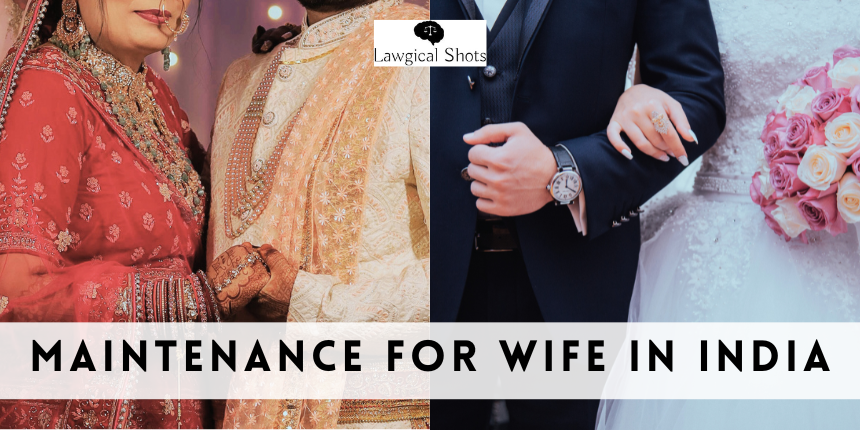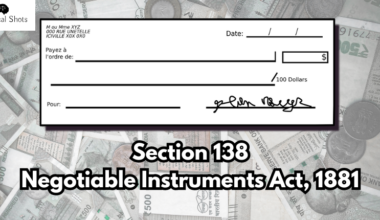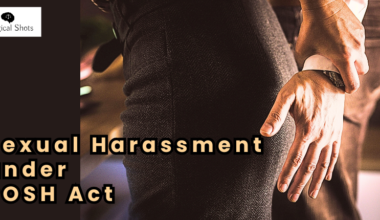Garima, with the order sheet in her hand, kept reading the lines again and again – Maintenance Denied!! The man her parents trusted that he would be her life-long companion, now betrayed her. He argued she has nothing to look after, she is educated then she requires nothing from him. While her parents always tutored her to come and stay with them and leave her husband, then why don’t they bear her expenses now?
What’s the fault of Garima? She has left everything: her career, her higher education, her parents, her friends, and the streets where she used to play. She now recalls her wedding day — where the bride’s family did everything, the grand marriage hall, floral decorations, music, food of almost five different countries, and big envelopes of cash for the groom and his family. When he got married as a king, why did he become bankrupt at the time of providing maintenance for his wife?
Her parents gave her everything, but now she is left with only a one-room rented flat with no job to sustain her expenses. Many job descriptions have changed in these years. She needs some time to get ready for the new-age jobs.
When a marriage is suspended, with no cohabitation, and no shared responsibility, is financial liability also suspended? The maintenance rights of wives in India have always been a heated debate. Some say the wife should earn and some say it is the duty of the husband to pay for her survival. While she is a girl before marriage, after divorce, she becomes a divorced woman. This article tries to understand the concept of maintenance for a wife, why it is important, aligned with the vision of law and human rights.
Maintenance Cases and Courtroom Practice
Maintenance matters have become day to day stories in Indian courts. Here is the description of one more such courtroom scene.
Judge: “A single lady, who doesn’t have to look after any parent or children, requires six lakhs a month. Does anybody spend this much? If she wants to spend, let her earn, not on the husband. This is not the purport of Section 24 of the Hindu Marriage Act, 1955.“
This judicial interpretation of maintenance application shows that maintenance provisions are not a path to attain luxuries but to get a fair amount for basic needs of life.
Now, the counsel for the wife explained why this much sum is prayed for. He says “My Lordship! At the time of marriage the groom’s family secured seven crores in the name of “Shagun and Milani”. It is dowry. Then the boy started wearing T-Shirts worth Rs. of 10,000/- daily. If he wanted to wear, he should also have earned — not on wife and her parents.”
This explanation by the counsel seeks equity by bringing the notice of the Hon’ble court to the financial burden on the shoulders of the bride’s family in traditional marriages. If financial dependence is questioned for the wife then why should the husband not be? It should be questioned for both.
The aspect of maintenance has always been a subject of reasoning. While daughters have their share in father’s property, then why should the husband maintain his estranged wife?
Evolution of Maintenance Laws in India
In India, since time immemorial, Men have been the providers, earning the bread and butter by working outside, and the women would stay at home and take care of the house, children, responsible for preparing the food that the man brings home. Mostly we have a patron in all families. So, a husband or father in law is obligated to maintain the wife or daughter in law.
Under Section 3(b)(i) of the Hindu Adoption and Maintenance Act, 1956 the amount of maintenance includes provisions for food, clothing, residence, education, and medical treatment and attendance in all cases.
There are two types of maintenance:
1) Maintenance “pendente lite”: This maintenance includes expenses related to court attendances, lawyer’s fees for any family law matter like divorce, cruelty, desertion, judicial separation, etc. It is a temporary maintenance for those who cannot defend themselves or bear court expenses and hefty services of lawyer.
2) Permanent maintenance: It is a long term support to the divorced wife unless she remarries. This maintenance can be lump sum or monthly, quarterly as per the discretion of the court and the party’s convenience. This is decided by the Judge on various factors and can be modified on account of any significant change in the circumstances of the parties. It can be when the husband suffers a loss in business or the wife gets a better job for herself, while their children have settled in their career.
Maintenance Rights under the Hindu Laws
The Hindu Adoption and Maintenance Act, 1956
The word “maintenance” has been defined under the Hindu Adoption and Maintenance Act, 1956 which includes facilitating food, clothing, residence, education, and medical treatment and attendance in all cases to a wife, children, infirm parents, widowed daughter in law(s).
Under Section 18 of the Hindu Adoption and Maintenance Act, 1956, we have
1) Right to Maintenance – A Hindu wife, whether married before or after the Act came into force, has the right to be maintained by her husband throughout her lifetime.
2) Right to Live Separately with Maintenance – She can live separately from her husband without losing her right to maintenance in the following situations:
(i) If he abandons her without a valid reason, without her consent, or neglects her.
(ii) If he starts treating her with cruelty, she starts to feel unsafe to stay with her husband.
(iii) If he has another wife living.
(iv) If he keeps a concubine in the same house or regularly stays with a concubine elsewhere.
(v) If he converts to another religion and is no longer a Hindu.
(vi) If there is any other valid reason justifying her decision to live separately.
When wife cannot claim the right to maintenance
A Hindu wife cannot claim separate residence and maintenance if:
- She is unfaithful /unchaste.
- She converts to another religion.
Hindu Marriage Act, 1955
The Hindu Marriage Act, 1955 is a law which provides for the marriage among two Hindus. It is a gender neutral approach. It provides for provision of maintenance to both the husband and the wife. Section 24 of the Hindu Marriage Act, 1955 provides for maintenance to either spouse as maintenance “pendente lite”. If either the husband or wife does not have enough independent income to support themselves or cover legal expenses, they can ask the spouse for financial help.
The court can order the other spouse or to the respondent to:
(i) Pay for the legal expenses of the case.
(ii) Provide a reasonable monthly amount for support during the proceedings, based on both spouses’ incomes.
The court should try to decide on this request within 60 days from the date of the notice being served.
Section 25 deals with the permanent maintenance of the husband or the wife. This Section provides answer to the following questions:
When can maintenance be granted?
The Court can order permanent alimony to either the husband or wife at the time of passing of divorce or judicial separation decree or any time later on the application of either the husband or wife.
How is the amount decided?
The Courts usually consider the following factors while determining the amount of maintenance:
1) The income and property of both the spouses.
2) The conduct of both parties.
3) Any other relevant circumstances like the sacrifice of a husband or wife with regard to career, aspiration or relationship.
4) Payment can be one time or periodic.
5) The court can secure payment by putting a charge on the respondent’s immovable property.
Can maintenance be changed later?
The amount of maintenance can be changed subject to any change in the circumstances/personal situations. The Court may reduce, increase, or cancel the maintenance order.
When can maintenance be stopped?
The Court can order for stopping or annulling the maintenance if the spouse remarries or engages in an extra-marital affair.
Maintenance Right under the Muslim Law
Under the Muslim Laws, any money spent by a man for his family is called “nafaqah”. Maintenance under the Muslim Law is governed mostly by personal laws. But statutory protection is extended by way of Muslim Women (Protection of Rights on Divorce) Act, 1986 and Section 144 of the Bhartiya Nagarik Suraksha Sanhita, 2023, earlier Section 125 of the Code of Criminal Procedure, 1973.
In May 1986, the Rajiv Gandhi Government enacted the Muslim Women (Protection of Rights on Divorce) Act, 1986, in response to the controversial judgment of Mohammad Akbar Khan v. Shahbano Begum (1985). In this decision, the Supreme Court said that the Section 125 of Code of Criminal Procedure, 1973 was a secular provision equally applicable to Muslim women. The Court ordered that the Muslim Personal Law should not be derogatory to statutory laws which are made for the benefits of the masses.
The 1986 Act limited maintenance for married Muslim women to the Iddat period, meaning a husband was only responsible for supporting his ex-wife for about three months after divorce. After that, she could only seek financial help if she had no other means of support. This law aimed to balance personal laws with legal protections for divorced Muslim women.
Maintenance of Wife under the Christian Laws
The Divorce Act, 1869 deals with the divorce proceeding of persons professing Christianity. Section 36 of the Divorce Act, 1869 discusses alimony “pendente lite” if a wife is involved in a Court case, whether instituted by her or the husband, or whether she has secured the order of protection or not, she can pray to the Court seeking financial support to cover her legal expenses and living costs while the case is ongoing. She should file a petition asking for these expenses, and the husband must be informed about it. The Court reviews the petition and, if it finds the claims genuine, it may order the husband to pay for the wife’s legal costs and alimony while the case is still in progress. The court makes a decision about this petition within 60 days of informing the husband.
Section 37 which provides for permanent alimony states that when a wife gets a divorce or judicial separation, the District Court can order the husband to provide permanent financial support to the wife. This could be a one-time lump sum or a regular annual payment for her lifetime. The court usually decides the amount based on factors like the wife’s financial situation, the husband’s ability to pay, and the behaviour of both the parties.
The Court can also order the husband to make monthly or weekly payments to support the wife. If the husband becomes unable to make these payments later on, the court has the power to pass a suitable order.
Maintenance of Wife under the Parsi law
Section 40 of the Parsi Marriage and Divorce Act, 1936 provides for the maintenance of husband and wife. This provision is quite similar to the Section 25 of the Hindu Marriage Act, 1955 as discussed earlier. Section 40 provides for permanent alimony. It answers the following questions:
When can the Court grant alimony in Parsi laws?
A court handling a divorce or separation case can order one spouse (husband or wife) to pay financial support for the other spouse. This can be a one-time lump sum payment or regular payments (monthly or periodically) that will not exceed the life of the plaintiff, which means the spouse who has applied for the maintenance. The nomination facility is not there Which means that nobody is burdened with providing maintenance after the death of spouse who was paying maintenance. The amount and duration depend upon various factors like:
- The income and property of both spouses.
- The conduct and circumstances of both parties.
If needed, the court can secure this payment by putting a charge on the paying spouse’s movable or immovable property.
Whether Parsi alimony is subject to a change?
If there is a significant change in circumstances like a change in income or financial situation of either spouse, the court can increase, decrease, or nullify the alimony amount. Either of the spouses can request this change.
When can Parsi law alimony be stopped?
The Court can also modify or cancel the alimony order if:
- The spouse in whose favour the alimony decree was made remarries.
- The wife is found to be unchaste engaging in relationships outside marriage, or
- The husband has sexual relations with another woman outside of marriage.
Maintenance of Wife under Special Marriage Act, 1954
Section 36 of the Special Marriage Act, 1954 deals with alimony pendente lite. If the Court finds that the wife has no sufficient means, as in no independent source of income to support herself or cover the legal expenses, then the Court may order the husband to
1) Pay for her legal expenses.
2) Provide her periodic financial support until the proceedings last.
The Court will decide the amount of maintenance as per the financial situation of the husband and other circumstances of the case.
Section 37 of the Special Marriage Act, 1954 provides for permanent alimony to the wife from the husband. This provision is different from Section 25 of the Hindu Maintenance and Adoption Act, 1954, and Section 40 of the Parsi Marriage and divorce Act, 1869, since it is in favour of the wife. The District court orders the husband to pay the wife necessary money as a financial support. This can be a lump sum or periodic. Maintenance is decided on the basis of the financial status of both the parties and their conduct. This alimony can be annulled if the wife remarries or not leading a chaste life.
Landmark Cases on Calculation of Maintenance in Contested Divorce
How do Courts decide the amount of maintenance in matrimonial cases? Let’s dive into some decided cases to understand this calculation.
Vinny Paramvir Parmar v. Paramvir Parmar (2011)
The Hon’ble Supreme Court held that there cannot be a straightjacket formula. The question of maintenance is subjective, i.e. based on opinions and options rather than what is stated by both the parties, to each case. It depends upon various factors and circumstances. Further, court explained that the courts should consider following parameters:
1) Income and properties of both the parties respectively, husband and wife both.
2) Conduct of the parties
3) Financial and social status of both husband and wife.
4) Personal needs of both
5) Capacity and duty to maintain their dependants
6) Husband’s own expenses
7) Comfort of wife during wedlock as per her status and mode of life
8) Other supplementary factors
Vishwanath Agrawal v. Sarla Vishwanath Agrawal (2012)
The Supreme Court observed that the permanent alimony is to be fixed by considering
1) The social status of the husband and wife
2) Conduct of the husband and wife
3) Mode of living of both
4) And other ancillary factors
Rajnesh v. Neha (2021)
The Apex Court confirmed that there is no fixed formula to decide maintenance. It should be based on consideration of other factors keeping in mind the balance between them. Maintenance should not be such that it leads to difficulty for the husband in managing his dependents or expenses. Following are the factors for consideration:
1) Social and financial status of the parties.
2) Reasonable needs of the wife and children.
3) Employment status of husband and wife.
4) Educational qualification of wife and husband.
5) Independent income and assets held by them.
6) Maintained standard of living during wedlock in the matrimonial home.
7) Any employment sacrifice done by the bride because of responsibilities in the family.
8) Reasonable litigation costs of a non-working wife.
9) Maintenance obligation and liabilities of husband with respect to his financial capacity.
10) Duration of the subsistence of the marriage.
Rinku Baheti v. Sandesh Sharda (2024)
In this case, the husband owned a big company worth around Rs 5000 Crores turnover. The wife in this petition was his second wife. She was claiming maintenance not as per her need but as per the status of her husband and whatever he parted with his first wife. Husband claimed that the first wife had a role in his asset building while the second wife has no role in his asset building.
So, the Court observed that “the law of maintenance is aimed at empowering the destitute which means the homeless and achieving social justice and dignity of the individual. The husband is under a legal obligation to sufficiently provide for his wife. As per settled law, the wife is entitled to be maintained as far as possible in a manner that is similar to what she was accustomed to in her matrimonial home while the parties were together. But once the parties have separated, it cannot be expected of the husband to maintain her as per his present status all his life. If the husband has moved ahead and is, fortunately, doing better in life post his separation, then to ask him to always maintain the status of the separated wife as per his changing status would be putting a burden on his personal progress.…. The Court has to not just consider the income of the respondent-husband here, but also bear in mind other factors such as the income of the petitioner-wife, her reasonable needs, her residential rights, and other similar factors. Thus, her entitlement to maintenance has to be decided based on the factors applicable to her and not depend on what the respondent had paid to his ex-wife or solely on his income.”
Conclusion
Law regarding the maintenance of the wife from time to time has been balanced by judicial interventions. There is no straight-jacket formula to determine maintenance. It depends on the socio-economic conditions of the spouses. Maintenance of the wife should not be a burden on the husband. It should not be a hindrance to his personal growth. Maintenance should not be like a burden on his shoulder. Same way, maintenance should be a launching pad for the wife so that she can navigate through the trauma and start her life afresh.
So far, societal stigma is attached with the wife that she should not beg but earn on her own. But the Courts also consider her sacrifice while undergoing the marriage. After completion of graduation, when one needs time to groom professionally, she is busy in preparing for her bridal interviews and subjected to societal humiliations and parental pressure. This pressure does increase when she is the eldest daughter. After marriage, she undergoes a massive change in her life, appearance and sometimes emotional challenges. Also, she is expected to be a mother as quickly as possible on social pressure not from her matrimonial home but natal family as well. Pregnancy, postpartum blues, upbringing a child, all requires a lot of sacrifice that none of the maintenance or dividend can ever compensate for. Even if the cause of divorce is refusal of the wife to be a mother or she has low fertility. Still she has to bear that stigma for forever and she also feels emotionally unheard. In these circumstances, there should be a balance of societal expectations, human capacity, adaptability, and resilience on the part of both the spouses.
So far, Courts have made every effort to maintain this balance, but society should understand the challenges of both the parties to a marriage while undergoing separation. Law of maintenance is based on the principle of social justice that wives and children are not homeless after separation. If such homelessness is encouraged by the society, then the society won’t ever be crime free.
Frequently Asked Questions on Maintenance Laws in India
Q: What is the difference between “maintenance” and alimony?
A: These two terms are close synonyms, however, alimony is post-divorce payment to the divorced wife or during the pendency of the divorce proceedings. Whereas, maintenance is given to anyone who is a dependent of the concerned maintenance provider.
Q: What is the meaning of “pendente lite”?
A: This is a Latin term which means pending litigation. It is a temporary relief for maintenance, financial support, or custody of the children.
Q: What is the difference between “pendente lite” and “lis pendens”?
A: “Pendente lite” and “lis pendens” are both Latin phrases which mean the same during the pendency of the litigation. But their scope is different. Lis pendens applies to property law to stop property transactions while the case is pending. Whereas pendente lite is applicable to family law, alimony and injunctions which grants a temporary relief to the plaintiff.
Q: Can a Hindu wife’s right to maintenance extend to the claim in the self-acquired property of the husband or the assets or income of the husband?
A: So far, there is no such right that exists that in the maintenance proceedings wife can claim any share from the self-acquired property of the husband. If the husband dies without making a Will, then she is the class I Heir as per the Section 8 of the Hindu Succession Act, 1956. But if the husband dies by leaving a Will behind then the property will devolve as per the Will.
The various legal provisions on maintenance for wife have been compiled and simplified by by Ms. Priyanka Jain, a Legal Intern at Lawgical Shots. Priyanka is bringing value through legal blogs for our readers.







